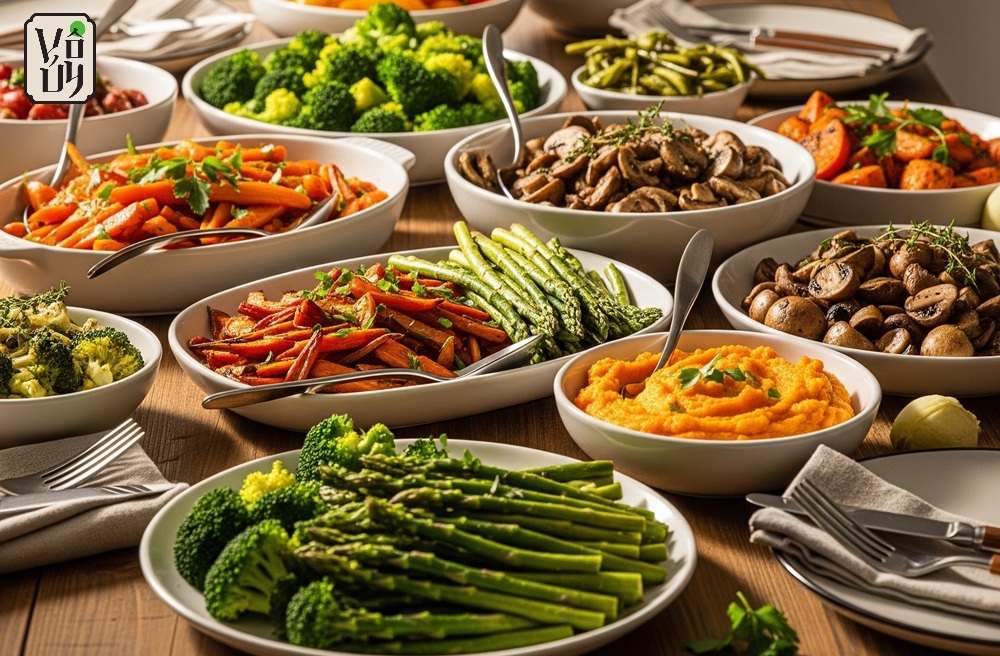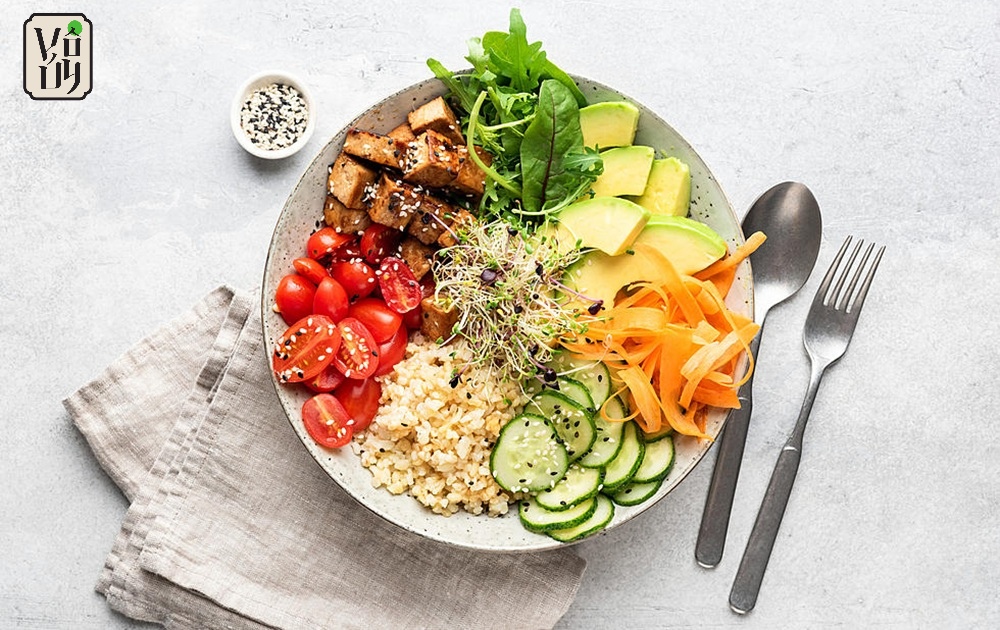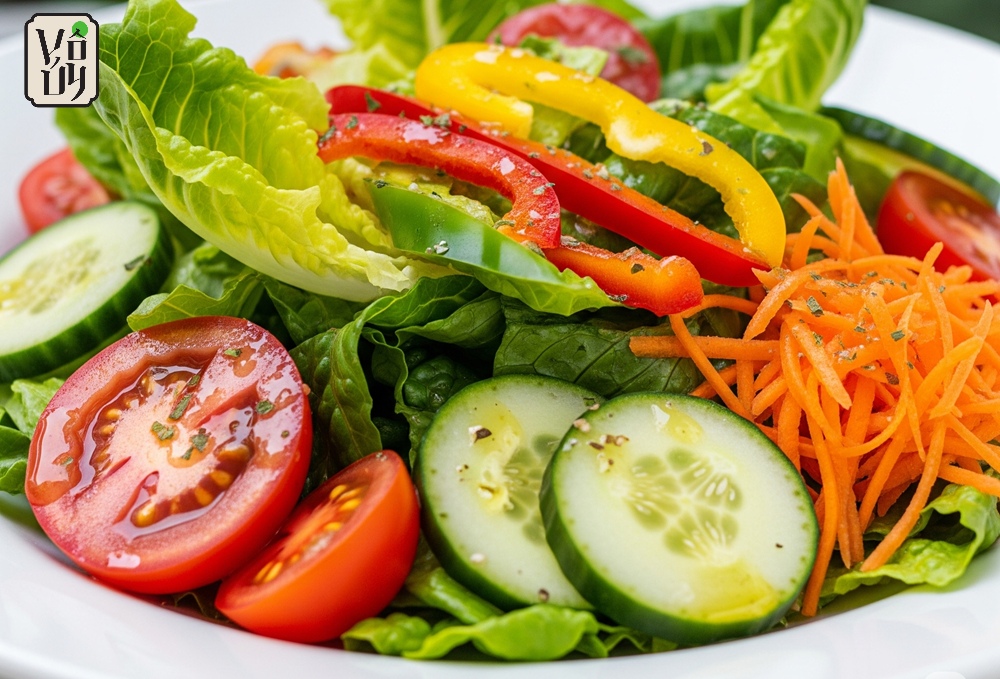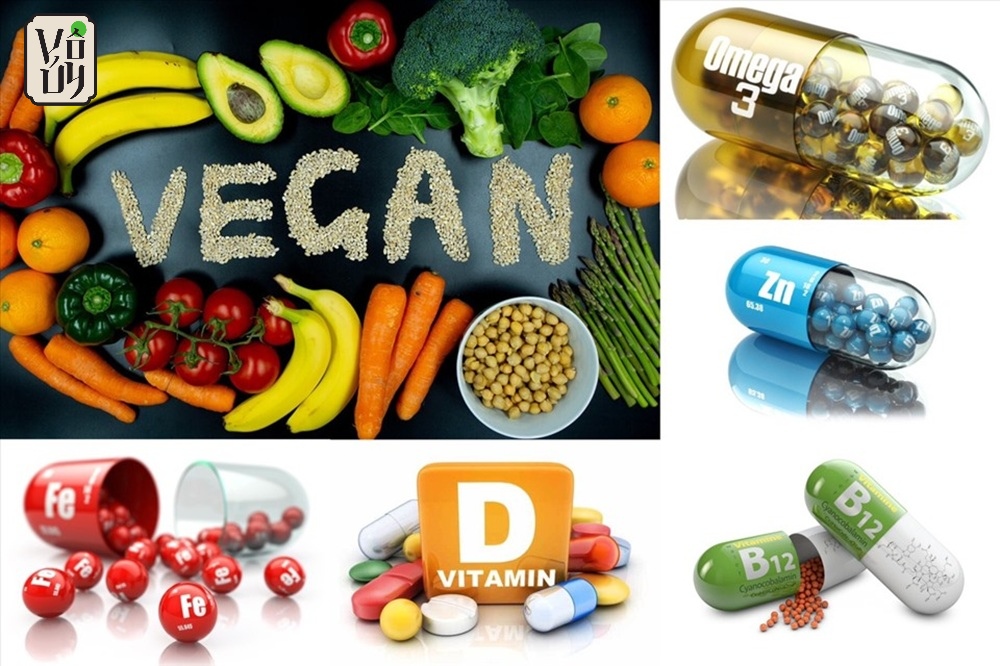Is a Vegetarian Diet Healthy? Benefits and Risks You Should Know
Is a vegetarian diet healthy? That’s a question many people ask when considering switching to plant-based eating. A well-planned vegetarian diet can offer numerous health and environmental benefits. However, if done improperly, it may lead to nutritional deficiencies. Let’s explore the pros, cons, and how to follow a healthy vegetarian lifestyle—together with Vo Uy Vegan Restaurant.
What Is a Vegetarian Diet?
A vegetarian diet is more than just a food choice—it’s a lifestyle embraced by many. It involves eliminating all or some animal products from your meals. There are several common types of vegetarianism:
-
Vegan: excludes all animal-derived products
-
Lacto-ovo vegetarian: includes dairy and eggs
-
Lacto vegetarian: includes dairy only
-
Pescatarian: includes fish and seafood
People adopt vegetarian diets for various reasons: personal health, religious beliefs, environmental concerns, or compassion for animals.

What Is a Vegetarian Diet?
The Rise of Vegetarianism in Vietnam and Worldwide
Vegetarianism is now a global trend. According to Statista, by 2024, about 10% of the world’s population followed a vegetarian diet.
In Vietnam, the movement is growing fast—fueled by Buddhist influences and the rising demand for eco-friendly lifestyles. More young people are embracing meatless meals, and vegetarian restaurants are booming across cities like Hanoi and Ho Chi Minh City, offering diverse and delicious plant-based dishes.
Health Benefits of a Vegetarian Diet
When followed properly, a vegetarian diet can offer outstanding health advantages. Here are some of the key benefits you should know:
Improves Heart Health
One of the top benefits of a vegetarian diet is better cardiovascular health. Plant-based foods are rich in fiber and low in saturated fat, which help lower bad cholesterol (LDL). Nuts and legumes provide plant-based omega-3 fatty acids that reduce the risk of heart disease. According to the American Heart Association, vegetarians have a 20% lower risk of stroke compared to meat-eaters.
Supports Weight Management
Vegetarian meals are typically lower in calories and higher in fiber, helping you feel full longer and curb unnecessary cravings. A study published in the Journal of General Internal Medicine found that vegetarians tend to have lower BMIs and are less likely to be obese. This makes vegetarianism a great option for those looking to maintain a healthy weight.

Health Benefits of a Vegetarian Diet
Lowers the Risk of Chronic Diseases
Is a vegetarian diet healthy in preventing disease? Absolutely. A well-balanced plant-based diet helps regulate blood sugar levels and significantly lowers the risk of type 2 diabetes. Research from Cancer Research UK also shows that high-fiber vegetarian diets can reduce the risk of colon cancer.
Boosts the Immune System
Fruits and vegetables are packed with immune-boosting nutrients like vitamins C and E, along with powerful antioxidants. These compounds strengthen your body’s defense system, slow down aging, and protect against harmful free radicals.
Enhances Digestive Health
High-fiber foods such as vegetables and whole grains improve digestion by promoting regular bowel movements and preventing constipation. A vegetarian diet also fosters a healthier gut microbiome, which can reduce digestive issues compared to a meat-heavy diet.
Risks of an Unbalanced Vegetarian Diet You Should Know
While many agree that a vegetarian diet is healthy, following it incorrectly can lead to serious health problems. Here are the potential downsides of a poorly planned vegetarian lifestyle.
Nutritional Deficiencies
A common concern with vegetarianism is the risk of nutrient deficiencies. Without careful planning, vegetarians may lack essential nutrients such as protein, iron, vitamin B12, calcium, omega-3 fatty acids, or iodine. Symptoms like fatigue, anemia, memory issues, or weak bones can occur if these nutrients are not properly supplemented.

Risks of an Unbalanced Vegetarian Diet You Should Know
Health Concerns for Specific Groups
Certain groups—such as children, teenagers in growth stages, pregnant or breastfeeding women—are more vulnerable to nutritional gaps on a vegetarian diet. Those with chronic conditions like anemia or osteoporosis should also approach vegetarianism with extra caution and medical guidance.
Weight Gain from Excess Carbs and Oils
Many new vegetarians tend to overconsume refined carbs and processed foods such as white bread, fried potatoes, or instant snacks. Overreliance on these items—especially when combined with too much vegetable oil—can lead to unwanted weight gain.
Digestive Issues
Some vegetarian foods may negatively impact digestion, especially in individuals with gastric ulcers or sensitive stomachs. Raw vegetables or gluten-containing grains can be irritating. Additionally, excessive fiber intake can increase stomach acid, leading to acid reflux or bloating.
How to Follow a Vegetarian Diet Properly to Maximize Health Benefits
To fully enjoy the benefits of vegetarianism, it’s important to follow a balanced and science-based eating plan.
Incorporate a Variety of Foods
Combine whole grains like brown rice and oats with legumes, seeds, vegetables, and fruits to ensure adequate nutrition.
For example, try a daily menu like:
-
Breakfast: Oatmeal with bananas
-
Lunch: Brown rice with tofu in tomato sauce
-
Dinner: Pumpkin soup with a fresh salad
Supplement Essential Nutrients
Make sure your body gets enough vitamins and minerals that may be lacking in a vegetarian diet:
-
Take vitamin B12 through fortified nutritional yeast or supplements recommended by a doctor
-
Pair iron-rich foods (like spinach) with vitamin C sources (such as oranges or bell peppers) to enhance absorption
-
Add plant-based omega-3 from flaxseeds or chia seeds

How to Follow a Vegetarian Diet Properly to Maximize Health Benefits
Limit Processed Vegetarian Foods
Packaged vegetarian items like vegan sausage or instant noodles often contain high levels of sodium, sugar, and trans fats.
Cook at home whenever possible to control ingredients and maintain nutritional quality.
Consult a Nutrition Expert
Work with a certified nutritionist to create a meal plan tailored to your body’s needs.
This is especially important for beginners or people with special dietary concerns.
Who Should Avoid or Be Cautious About Vegetarianism?
A vegetarian diet may not be suitable for everyone. Below are groups that should carefully evaluate before adopting this lifestyle.
Groups Requiring Special Nutrition
- Children and teenagers need sufficient protein and essential nutrients to support physical and cognitive development
- Pregnant and breastfeeding women have higher energy needs, so a vegetarian diet must be closely monitored if followed
People with Specific Medical Conditions
Those with osteoporosis, anemia, or stomach ulcers may face greater risks if they follow an unbalanced vegetarian diet.
Always consult a doctor to ensure your diet supports your condition.
Physically Active Individuals
Athletes or manual laborers require complete proteins, which are often easier to get from animal sources.
If eating vegetarian, they need to consume enough plant-based protein from beans, seeds, and whole grains to maintain strength and energy.

Who Should Avoid or Be Cautious About Vegetarianism?
Recommended Vegetarian Dishes for Beginners at Vo Uy Vegan Restaurant
Discover a healthy vegetarian lifestyle at Vo Uy Vegan Restaurant, where every dish is crafted with fresh vegetables and premium ingredients imported from Australia. All meals are MSG-free, maintaining the pure, natural taste while ensuring both health and refined flavor. Here are some of the most popular plant-based dishes at Vo Uy you shouldn’t miss:
-
Cơm cuộn Avo: Soft sushi rice wrapped with creamy avocado, topped with rich teriyaki sauce—visually appealing and full of flavor.
-
Súp sơn hào hải vị: A light and nourishing soup made with fresh mushrooms and imported vegetables, offering a delicate balance of taste.
-
Nấm thiện duyên sốt chanh dây: Crispy mushrooms drizzled with a sweet-tart passion fruit sauce that awakens the taste buds.
-
Gỏi phan lê: A refreshing mix of crisp vegetables and aloe vera, ideal for a light and healthy bite.
-
Tempura nấm: Fresh mushrooms lightly battered and fried for a crispy exterior while retaining natural sweetness inside.
-
Xôi hoàng phố hạt sen: Fragrant sticky rice paired with nutty lotus seeds—an elegant and satisfying side dish.
-
Lẩu riêu Hồng Liêu: A gentle and savory hotpot made from tomato and vegetable broth, perfect for family gatherings.

Recommended Vegetarian Dishes for Beginners at Vo Uy Vegan Restaurant
Explore more creative, plant-based dishes on Vo Uy’s diverse menu—each prepared with fresh, clean ingredients and great care.
Book your table today to experience a vegetarian journey that nourishes both body and soul.
Contact Information
-
Address: 47 Street No.3, CityLand Park Hills, Ward 10, Go Vap District, Ho Chi Minh City
-
Hotline: 0902 353 527
-
Website: https://nhahangvouy.com
-
Facebook Fanpage: fb.com/nhahangchayvouy
-
Google Maps: Link Google Maps
Frequently Asked Questions About Vegetarianism
Does a vegetarian diet help with weight loss?
Yes, especially if you choose low-calorie, high-fiber foods. However, avoid excessive starch and oils for the best results.
Can you get enough protein from a vegetarian diet?
Absolutely. Combine legumes, nuts, and grains. Lentils, tofu, and quinoa are excellent and easy-to-find plant protein sources.
Should children follow a vegetarian diet?
Not recommended unless carefully supervised. Children need a wide range of nutrients for proper development. Consult a pediatrician if needed.
How can I avoid vitamin B12 deficiency while eating vegetarian?
Use fortified nutritional yeast, plant-based milks with added B12, or supplements prescribed by your doctor.
Does a vegetarian diet affect muscle strength?
Not if you consume enough calories and protein. Many athletes like Novak Djokovic thrive on a plant-based diet.
So, is a vegetarian diet healthy?
Vegetarianism offers many benefits such as improved heart health, better digestion, and reduced risk of chronic diseases.
However, if not followed correctly, it can lead to nutrient deficiencies. To eat vegetarian effectively, vary your food choices, supplement key nutrients, and consult with a nutritionist. Combine this with regular exercise and adequate sleep for maximum health benefits.


 0902 353 527
0902 353 527  cskh@nhahangvouy.com
cskh@nhahangvouy.com 

